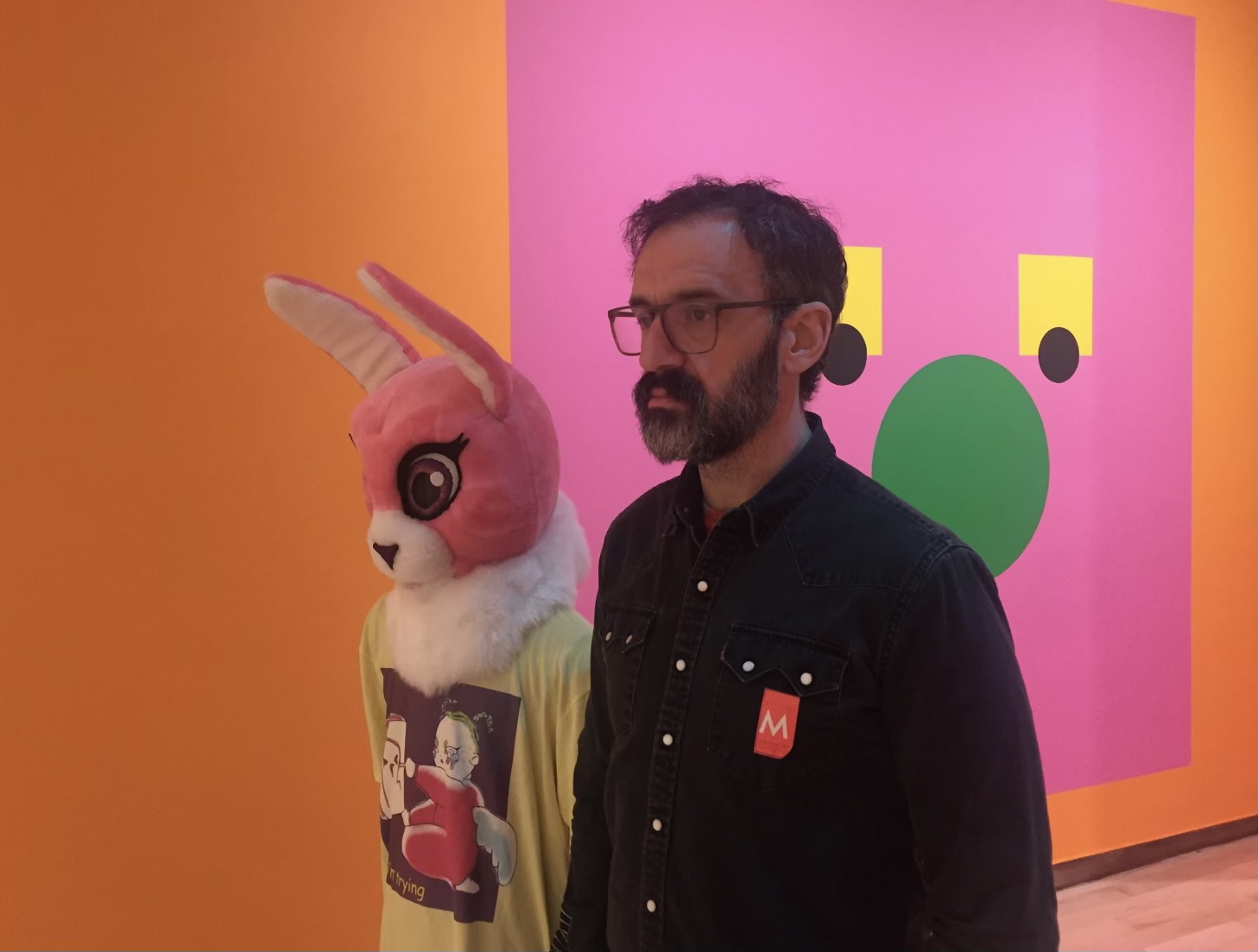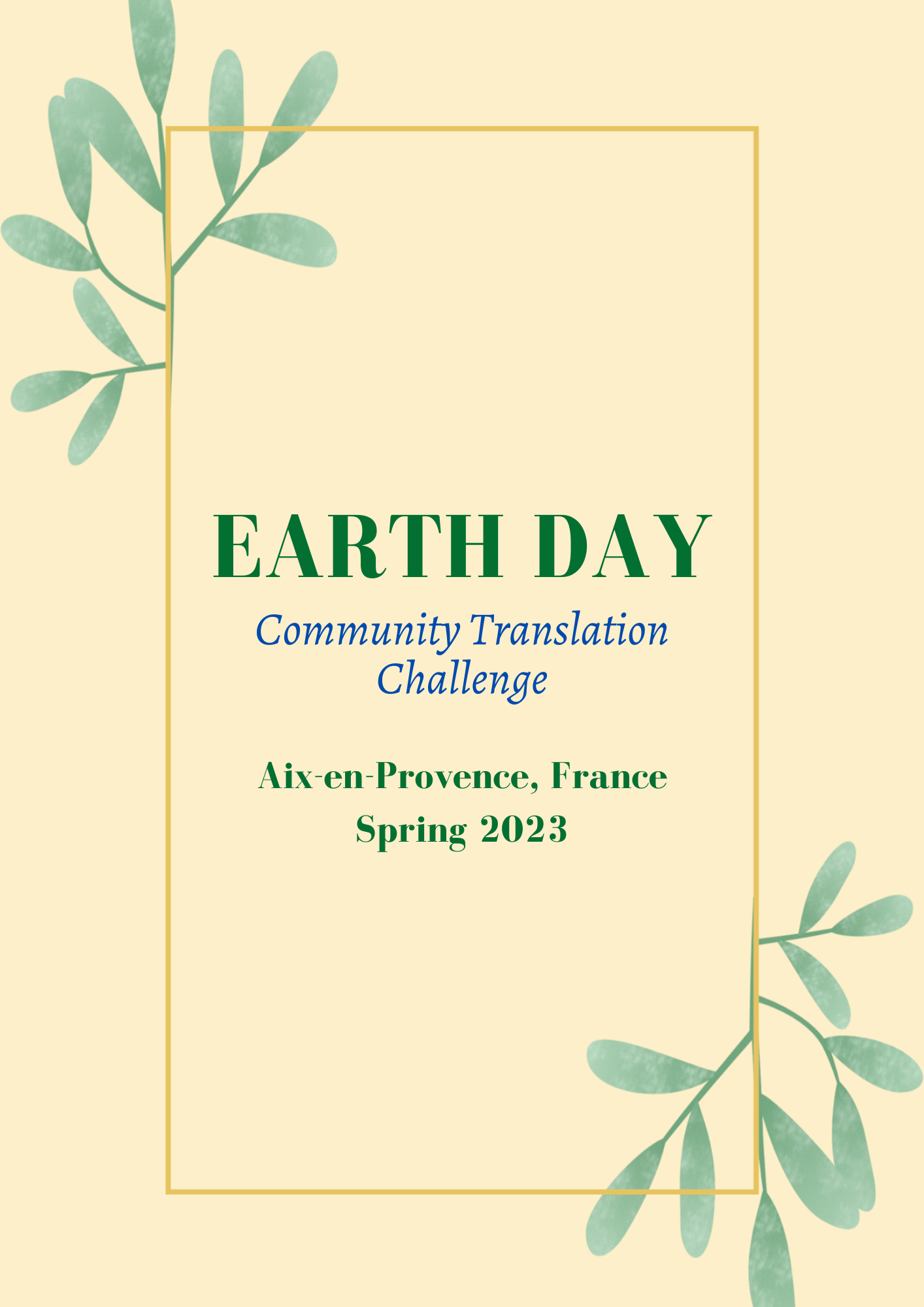
Earth Day Community Translation Challenge
The second installment of Simultaneous Translations spotlights Earth Day with a focus on global connectivity by highlighting the language diversity at the various universities in Aix-en-Provence, France.
Thousand Languages partnered with L'Institut d'Études Politiques (Sciences-Po) and the Erasmus Student Network in Aix-en-Provence, France and to feature translations by both French and International students on the database. With a focus on fighting climate change through global cooperation in the spirit of Earth Day, participants from around the world studying in the south of France translated the feature poem into a chosen language. Translations were submitted collaboratively or individually.
Read more about the project here
Submissions closed
Banner photo by Sergei Gussev
Featured poem / translation challenge
"Blue in Green" by Jason Labbe
—After Bill Evans
If there are trees
Wherever you live now,
Look up. See sky,
Like chips of smooth seaglass,
Between the stripped limbs.
If there is water,
Look down
At the blizzard of minnows
In the weeds. Remember:
Space between bodies
Is necessary. Find me
If you have forgotten.
About this poem:
“Blue in Green” is titled after the song from Miles Davis’s album Kind of Blue. The song is claimed by some (including Evans himself) to be a Bill Evans composition, although Miles took sole credit. This is a loosely ekphrastic poem in that it was inspired by the recording and written while listening with a focus on Evans’ piano. I’ve always loved the title Blue in Green, its play on the way primary colors make combinations, the way a singular thing can be made from multiple parts. I hear this piece of music as a sort of color study, and so is my poem, in which the speaker laments a lost relationship. Although the original song is not a twelve-bar blues, the twelve-line form and subject matter make the poem “bluesy” and keep with the jazz tradition.
- Jason Labbe (Author)
About the author:
Jason Labbe is the author of two books of poems, Maps for Jackie (2020) and Spleen Elegy (2017). His work has appeared widely in journals such as Poetry, Conjunctions, The Brooklyn Rail, Denver Quarterly, A Public Space, and 32 Poems. He is the editor and publisher of Here, a small magazine dedicated to innovative poetry. He is also a drummer and recording engineer and has performed on recent albums by Zachary Cale, Slant of Light, and Snake Oil. He lives in Bethany, Connecticut—roughly equidistant between New York City and Western Massachusetts, where most of his music projects are based.

This project is run by TLP Intern Acacia Wastchak

About Acacia
Acacia is a third-year undergraduate student in Barrett, the Honors College at ASU studying International Trade with a minor in French. Travel and foreign languages are two of her biggest passions and what has led her to study abroad in Ecuador, Italy, and now France for the spring semester. Both her mother and grandmother are writers, so literature - and especially poetry - have always been a big part of Acacia's life and inspired her own love of writing and language. Acacia is a polyglot and speaks Spanish, Italian, French, and Portuguese in addition to English and is currently learning German. As an intern for TLP this semester, she is both translating poetry from HFR into Spanish, Italian, and French as well as running the Translation Challenge in Aix-en-Provence, France at the local universities.
About Simultaneous Translation
Can there ever be a definitive translation of any text? A translation so complete that others are unnecessary? Or are there infinite versions of that text that could exist, adding shades of meaning, personality, or nuance to the source text?
We believe in the value of a multiplicity of voices and interpretations, each of which adds complexity to our understanding of a source text. Therefore, every sincerely embarked upon translation has its own authority, stemming from both the original language text and its translator. To highlight the simultaneous nature of translation, which allows these many versions to exist concurrently, we’re asking for bilingual people and translators of all levels, from around the world, to respond to a single text simultaneously.
